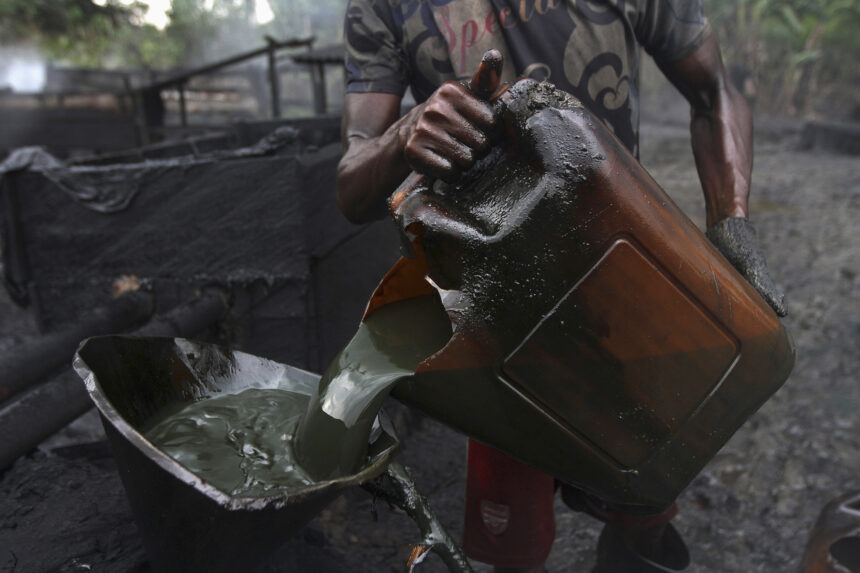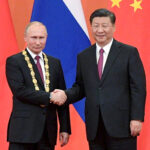The concept of “twin insurgency” links criminal and plutocratic insurgencies to oil theft in Nigeria and Brazil. Criminal insurgencies encompass multiple generations of gangs characterized by diverse levels of political and economic intricacy. Plutocratic insurgency, conversely, involves influential elites circumventing governmental obligations by creating “micro-sovereignties.” Both entities capitalize on governmental vulnerabilities, conflating political and criminal violence. Interactions among these militants erode political power, affecting governance and economic oversight of essential resources like oil.
Comprehensive analysis of the progression of criminal insurgency
The initial generation functions on a limited scale and influences local security via territorial conflicts. They provide a little obstacle to state government.
Second Generation: Broaden operations across regions and assimilate with political frameworks. Their strategies are becoming ever intricate, including the co-opting of officials.
Third Generation: Shift to de facto states exerting substantial political and economic control over regions. They contest the state’s exclusive authority over violence and governance.
Comprehending Plutocratic Insurgency
In contrast to criminal insurgents, Plutocratic insurgents are driven by motivations that extend beyond just financial gain or territorial acquisition. They deliberately undermine governmental frameworks to preserve autonomy from national and international constraints. This involves employing financial resources to create semi-autonomous zones of influence.
These “micro-sovereignties” subvert state sovereignty by reallocating national income for individual profit and exacerbating economic inequality.
The convergence of criminal and plutocratic insurgency exacerbates state vulnerability.
Criminal groups and wealthy insurgents collaborate to provide manpower, infrastructure, financial assets, and political influence.
Geopolitical Implications in Nigeria
The nation’s challenges with oil theft reflect a broader governance dilemma. The state’s incapacity to manage its resources, despite numerous military and security initiatives, stems from pervasive corruption, underdevelopment in the Niger Delta, and inadequate federal supervision.
The security landscape is complicated by entities like the Indigenous People of Biafra (IPOB) and the Niger Delta Avengers, who pursue political sovereignty and resource management with economic grievances.
Brazil’s Emerging Threat Landscape
Organized gasoline theft in Brazil mirrors Nigeria’s challenges, albeit to a lesser extent. Criminal organizations, including the First Capital Command, have penetrated essential economic sectors, encompassing pipelines and gas stations.
Corruption within the police and political elite results in ineffective law enforcement and heightened criminal activity.
Dysfunctional Sovereignty and Institutional Decay
Institutional deficiencies are evident in Nigeria and Brazil. Governments face challenges in enforcing legislation and maintaining territorial integrity.
The presence of multiple hybrid security entities undermines sovereignty. Tantita Security in Nigeria, overseen by former militants, like with private militias in Brazil, exacerbates a fragmented security landscape where the state’s authority is waning.
Influence on Economic Stability:
The dual insurgency destabilizes national economies, leading to a loss of billions in oil revenue. This economic leakage undermines the state’s capacity to finance essential services and perpetuates the cycle of poverty and underdevelopment in affected regions.
Fuel theft in Brazil has evolved from little to extensive operations, jeopardizing energy security.
Possible Intervention Pathways
Confronting these challenges necessitates more than a mere security response. It necessitates socioeconomic advancement, transparent governance, and robust anti-corruption initiatives.
Restoring order through engagement with affected groups and the implementation of regulatory reforms can enhance state legitimacy and counter both plutocratic and criminal insurgencies.
The twin insurgency is not merely a security challenge but a fundamental governance dilemma that requires holistic solutions surpassing conventional counterinsurgency or enforcement strategies.
Read more here.







